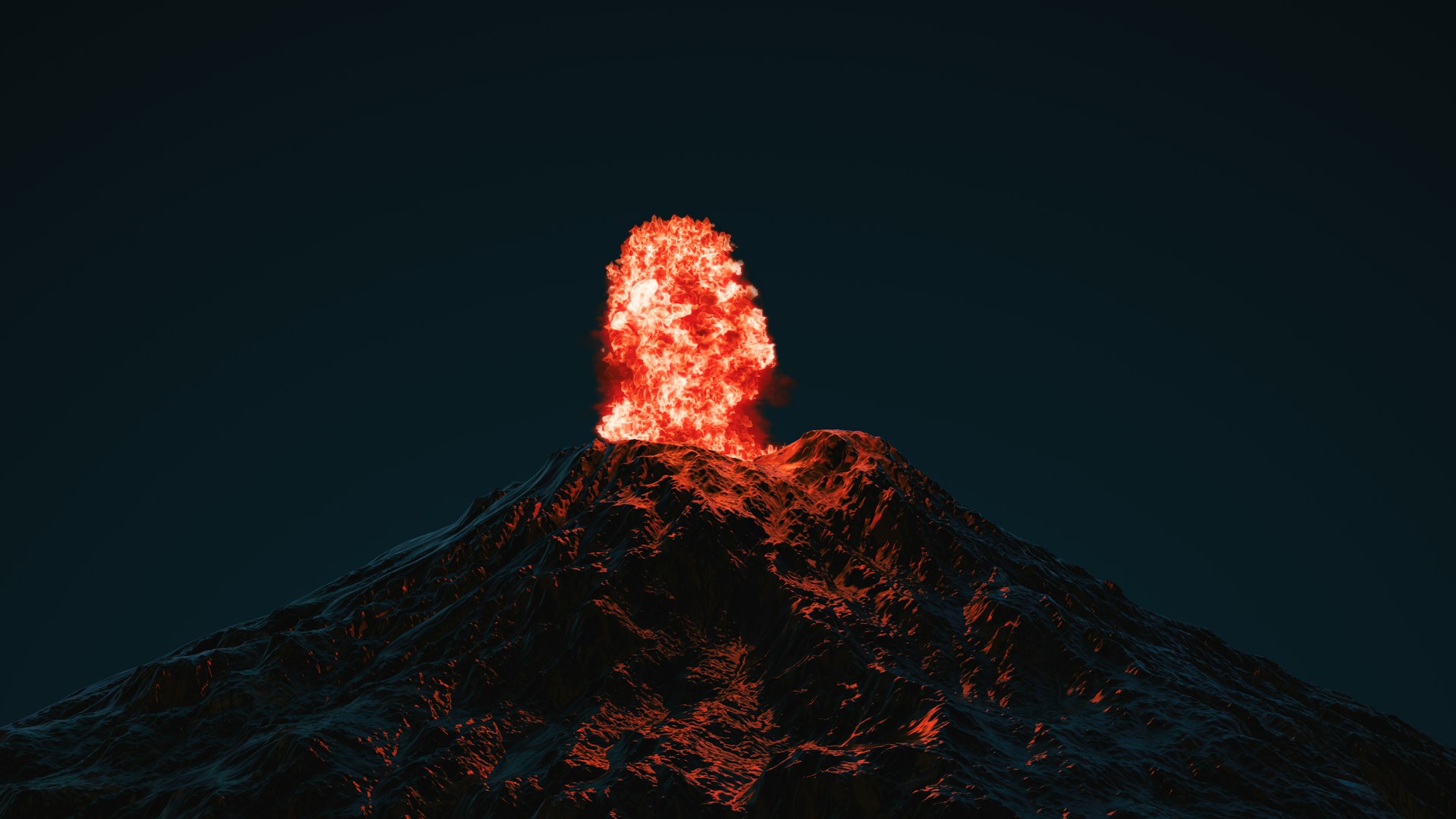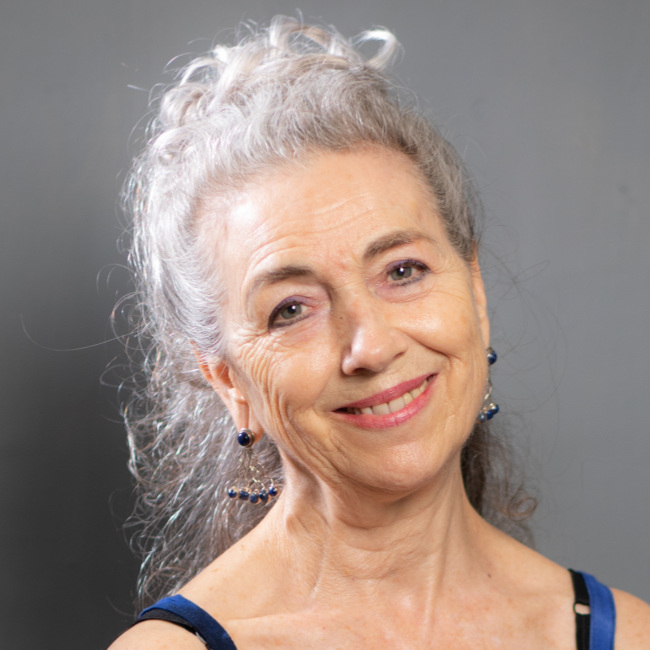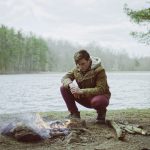A fable by Madhuri

When the little volcano came pushing up through the sea not ten metres from shore, working away at building an adjunct to the island, bit by molten red, then smoky black, bit, people were very excited. They would stand on the beach and stare at the plume of smoke, or circle the small cone in paddle boats (reporting that the sea in its vicinity was hot). Soon kite surfers began to explore its possibilities, leaping up to it on a gust and then catching the updraft and being spirited away, laughing, to safety. This took care and prudence, though, for an insufficient wind could dump the sportsman into the little red maw (about the diameter of a trash barrel), with bad consequences. Then, on days when the kite surfers were out, the authorities installed a man with a small motorboat on the beach (he sat, sweating in his uniform, under a beach umbrella) as a deterrent. This phase lasted only a short time, though – for soon the red maw was the size of the bed of a dump-truck, and raised up high enough above the level of the water that it towered over the swimmer. People began to steer clear of it as the novelty wore off, and they began to get a sense of the power in it – a boiling thing that could just grow of itself, and who knew how high?
Then some civic-minded soul, in the still of a wakeful night, had an Idea: the island had a perennial problem with trash. Tourists came and went in great profusion, endless parades of pale Brits and stalwart, stallionesque Germans, insouciant hippie French and even laid-back Canadians far from home – and they left mounds of plastic trash bags in various colours, heaped in and about the partially-fenced bin-places on the roads. Nobody really wanted to deal with all this offal, nor did they know how to. The main city had on its outskirts a mountain of such bags, split and stinking, and the mountain grew daily – much faster than did the little volcano on the other end of the island. Why not, reasoned the bright spark, bring the two together? Before the volcano grew too high?
A special lift was installed on an old and sizeable fishing boat, and trucks made their way over winding hilly roads from all over the island, bearing the garbage of a careless people, and the garbage of holidayers, and construction leavings, and every other unwanted thing – and there was so much of this that the traffic went on night and day for weeks. The rubbish sacks were hurled into the boat, taken out to the smoky cone, and up went the lift with bag after bag as a man tossed them into the volcano’s mouth. Such was the heat there that anything thrown in was immediately incinerated, with not a trace remaining – although the ubiquitous plastic did send waves of unpleasant fumes out of the cone, along with belching breaths from the volcano’s own awful interior – which were however soon dissipated on the breeze.
The volcano ate and ate and never seemed to feel satiated. Anything unwanted could vanish in there. New-age tourists and ex-pat residents began including the volcano in their group programmes – you could write down on a paper anything in your life you wanted to unburden yourself of, and then the group would paddle-boat out to where a rivulet of magma ran into the sea and feed the paper to the red-hot stream, and be, ostensibly, free.
There were on that island, as in every human settlement, people with feuds. Neighbours, or even brother and brother, fighting over a foot or two of land; families, one of whose members had done some unforgivable thing to a member of a different family, fifty years before; and the case was in the courts, or not; and things dragged on and on, and in whosever favour they were decided, the other party would hold a grudge, perhaps forever. There were also husbands tired of wives, and vice versa; and financial deals concerning restaurants and hotels that had gone awry, incurring smouldering wraths. And at some point, in the still of the night, someone thought of the perfect way to dispose of an enemy…
And so it proved to be. A searchlight was installed on the beach road, to play all night upon the cone – but a homicidal person could just cover it with a blanket for the duration, so it didn’t really serve. There were not a great number of unlucky victims – it was, on the whole, a happy island – but even one was too many, and there were more than that.
Another bright citizen, in the still of the night, had an idea: he owned a restaurant on the front, and, in the view of patrons, hastened cuts of meat and whole fish out to the fumarole in a quick boat, roasted them over a magmic river, and brought them back poached in sulfur and crispy all over. This was popular, in spite of the taste.
The island throve – trash-free, with a diminishing population of enemies; well-touristed, and attractive to all sorts of scientists, who came to study the growing volcano, its seismic activities, its effects on weather, and health, and so on. Soon religions wanted to claim the little peak, as the black bubbling face seemed to resemble various saints from days gone by. Cosmetics were made from its exudations, and endless photographs and paintings celebrated its startling streaks of fire. Sunsets seemed redder when viewed through its haze, and sunrises, though they took place in the other direction, seemed to promise more for the coming day.
And then the season was over – all the foreigners, save the ex-pats, went home – and cold winds blew along the front. Many hoteliers and restaurateurs went abroad for the winter, to visit grown children far away – but whomsoever stayed, found that the volcano began to show itself inside their dreams.
A woman dreamt of a red cone pushing up her nipple from beneath – and knew she must go to the doctor for a scan. A man dreamt he was slow-dancing with a blonde maiden, but tripped and fell backwards, and there was the magma, ready to swallow him up. He shivered, on waking, and knew that he must guard against his wife discovering his adultery. An Ancient dreamt that he swam into the sea and circled the new island, then, feeling very weary, realised without too much regret that he would not make it back to land. Next day he said goodbye to all his kin, for he knew his time would come quite soon. A young man dreamt that he climbed barefoot upon the charred cone and stood high on its side, shouting out that he loved a certain feisty young woman. On waking, he knew that he must woo her, and prove himself in some difficult way, for she was worth the struggle. A child dreamt that the cone bubbled chocolate, and gumdrops sailed above it in the updraft, and ice creams, miraculously frozen, were available at a concession stand on its flanks. He knew, on waking, that miracles can happen, and he hoped them for himself. A young girl dreamt she flew – high, high above the island, and the volcano was a glowing light down below, showing her where her home was; and she knew, on waking, that life has both adventures and homecomings, and that both are good.
One day, for reasons of its own, the little volcano went to sleep – the fire was gone, the magma slid back down into the earth, and only a pointed mound remained above the sea… and then the people remembered it in verse, and photographs, and a dish or two in a restaurant, named after it; and you could swim out to it, climb up, and stomp around as long as you had proper protective shoes, for it was sharp and thorny to the feet. Some people were sad that it was gone, and some were glad – and, on that whole island, once more the garbage piled up in sacks along the streets, and nobody wanted to truck it anywhere, and it was again a problem, just as though that visitor from the invisible deeps had never come among them. That, though, was in the daytime… in the night, everyone knew that it had.
Featured image by Mohamed Nohassi via unsplash.com





Comments are closed.